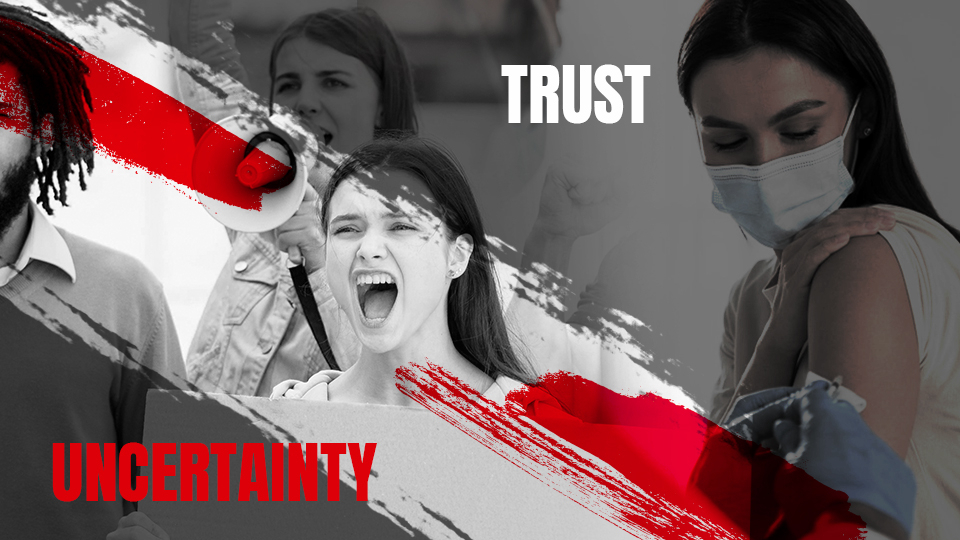Since my father passed away unvaccinated from COVID in April this year in Sofia, I have been spending a great deal of time thinking and writing about the differences that exist between Bulgarians and Britons in their attitudes and policy approaches to vaccination. One of the most thought-provoking differences I have discovered through my own research and that of my colleagues at AKAS is the polar opposition there is between the two publics in their attitudes towards vaccines. Why is it that Bulgarians have the lowest vaccination rates in Europe and are among the most sceptical towards COVID vaccines, while the British have among the highest vaccination rates in Europe and exhibit such high levels of vaccine acceptance? The answer to this question is intrinsically linked to two important cultural factors: the general levels of trust the population has in people, institutions and the system, and how tolerant of uncertainty the public is.
Lower levels of trust in people, institutions and the system combined with high avoidance of uncertainty, both of which are prevalent in Bulgaria, manifest in two ways: firstly, in the widespread endorsement of conspiracy theories in general and secondly, in the high levels of vaccine rejection/scepticism. Bulgarians endorse conspiracy theories more than most EU nations and are among the biggest vaccine rejectors in general.
Why are Bulgarians so prone to endorsing conspiracy theories and to rejecting vaccines? There are several theories I am exploring, one of which I will share today. Ongoing research into the cultural differences between various nations, which social psychologist and international management expert Geert Hofstede pioneered a few decades ago, shows that Bulgarians are more than twice as likely to want to avoid uncertainty as British. (He calls this cultural dimension the uncertainty avoidance index). It turns out that, compared to the British, Bulgarians are particularly intolerant of a future that unfolds spontaneously and are more likely to need to feel in control of it. This may explain to some extent why Bulgarians are so open to conspiracy theories as these are known to simplify an overwhelmingly complex reality, offering those who believe in them a false sense of clarity and therefore higher levels of perceived control.
Separately, the widespread distrust of Bulgarians towards institutions, people and the system manifests in vaccine scepticism existing throughout the whole population, including healthcare workers and journalists. I was astonished to discover that in 2020, before the pandemic, overall vaccine confidence among Bulgarian family doctors was the joint lowest in the EU, with Romania. Only 17% of Bulgarian family doctors (vs. 95% in the UK) and 31% of Bulgarian healthcare professionals (vs. 60% in the UK) were likely to recommend the MMR, seasonal influenza, and HPV vaccines in 2020. The issue of vaccine scepticism among Bulgarian healthcare workers therefore preceded the pandemic but has not been investigated by the news media. This scepticism among medics is incredibly damaging to the success of the COVID-19 vaccine campaign, because as research
has shown, doctors globally are highly trusted messengers and a major success factor in any health-related campaign.
The biggest advantage that Britain has over Bulgaria in relation to the overall vaccination campaign is the enormous trust and love that British people feel for the NHS (the National Health Service). In the words of my British husband: “In a country which is one of the least religious in the world, the NHS is the closest Britain gets to having a religion.” The enormous trust that everyone has in the NHS, combined with high tolerance of uncertainty, has unquestionably facilitated the success of the vaccination programme in the UK.
So, what can be done to overcome vaccine hesitancy for the greater good of all? Is there a way to increase tolerance of uncertainty and build trust in COVID vaccines? Read my future blog entries to find out…






